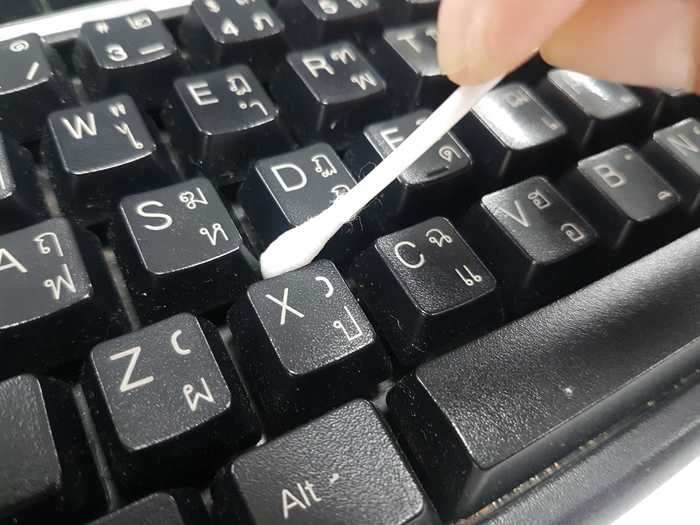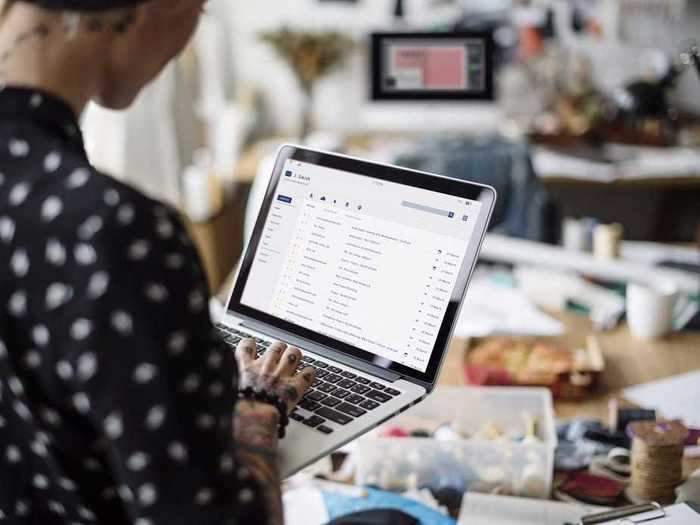Mark McLaughlin.Courtesy of Mark McLaughlin
- Dr. Mark McLaughlin practices neurological surgery at Princeton Brain, Spine, and Sports Medicine; he is the author of "Cognitive Dominance: A Brain Surgeon's Quest to Out-Think Fear."
- While you have time at home, spend it organizing your environment and improving your brain health.
- He recommended clearing your email inbox, decluttering your home in small bits, and setting up a library.
- Visit Business Insider's homepage for more stories.
What's the most valuable real estate you own? Your condo? That getaway in the woods?
Wrong. Your most valuable piece of property sits between your ears. Your teeming brain and the thoughts it contains govern everything you do.
Do you take care of it? Have you done any renovations or preventative maintenance recently?
During the enforced calm of the COVID-19 lockdown, why not take a moment and practice a productive pause. Heck, if we take the time to organize our garages, imagine how good it would feel if we did the same for our minds?
Consider this a quick tutorial for a spring cleaning of your brain. Think about all of the stuff you could discard or organize in your mind and workspace that would make you feel more efficient. What could streamline your environment so that your brain could work in a more focused way?
Here are three common physical areas that you control and can declutter, freeing up a lot of your mind's RAM.
Read the original article on
Business Insider
You have time now, so invest in your brain health
Doing this will have long-term positive impacts.
Getty Images
If you can take these three actions, you will have effectively decluttered the physical environment your brain works in. Take advantage of being at home; take that productive pause. Clean the physical environment your brain sees. Dump the old emails, declutter your spaces, and create your own library.
What have you got to lose? All you're doing is increasing the property value of that gold mine you already own!
3. Organize your library, or build one
Organize your books in a home library.
Shutterstock
Anyone who knows me knows I'm a bibliophile. There are multiple studies that support old-fashioned reading as one of the best methods to learn and exercise your brain. I'd guess if you're reading this, you are probably committed to self-betterment through reading.
I'd also bet you have at least a small collection of books scattered around your home. Just as it's beneficial to identify a single location for meditation, the same holds for reading. Pick a good spot. Make it as nice as possible, with a good lamp and comfy chair. If you have a bookcase (or even a small shelf) put it nearby and arrange your book collection in some order. I arrange mine by genre: self-help and medicine (big categories for me), biographies, big idea books, etc. You now have the time to do this. Get started!
The act of organizing your books will help you better organize your thoughts. Having a part of your home set up like a mini-library will encourage you to read those books you set a goal to read in 2020.
2. Declutter your environment
Take a minute to organize your space before you do anything.
Chanita Chokchaikul/Shutterstock
"The Diamond Cutter: The Buddha on Managing Your Business and Your Life," co-written by Geshe Michael Roach, taught me a great technique to practice before my morning meditation. I highly recommend this book, as it was my impetus to initiating a morning routine that I have stuck with for over five years. There are many great ideas in the book, but here's the real gem.
Roach recommends prior to meditation that you spend a minute or two straightening up. Just a little cleaning. Like arrange the pencils on your desk, or put them in a cup. Wipe the dust off the table with a moist cloth. Pick up a few pieces of thread on the floor. Whatever it is, just straighten up a bit.
Wow! What a powerful habit that has been for me. It's a subliminal message to your mind that you're literally getting your house in order.
When you spend your first few minutes of whatever work you are about to do in straightening up, you are demonstrating to yourself that you can overcome chaos and create order. And that message over time reinforces the feeling that you have more control over your environment that you did yesterday.
The long-term result for me was a less cluttered and more confident workspace and mind. You can apply this habit to every room of your home. When you enter your closet, take a look around and put something in place. Put dirty clothes in the hamper, place your cufflinks in the container. Is there a shirt that you haven't worn for two years? Does it bring you joy? If not, scrap it.
1. Declare email bankruptcy
Clear out your messages.
Rawpixel.com/Shutterstock.com
There's no way you're ever going to get to all of those old emails. It's useless. Plus the more you answer, the more you get back. Give up — or at least retreat.
Currently I have (or had) 756 emails in my inbox. If I break it down, at least 25% is garbage, another 50% relevant a few weeks ago but not now. The rest may or may not be important. The important ones usually have a chat thread with them or they have been sent more than once.
So the vast majority of my emails, and probably yours, are useless baggage.
Here's what I did today: I dedicated exactly 30 minutes to complete this task. Working back from today's emails, I reviewed and handled as many as I could. Once I hit 30 minutes, I deleted everything below. Boom. In one click I felt renewed. It might cause some anxiety, especially if you are as meticulous as I am. But I promise, if anything in that bunch was important, someone will let you know.
I can't speak for you, but I will never be able to master my email inbox. I have accepted that fact as I accept gravity. And we have a saying in neurosurgery: Gravity is undefeated. But after this inbox cleaning, it's easier to be more decisive about new emails and required actions. Try it, you might like it.




